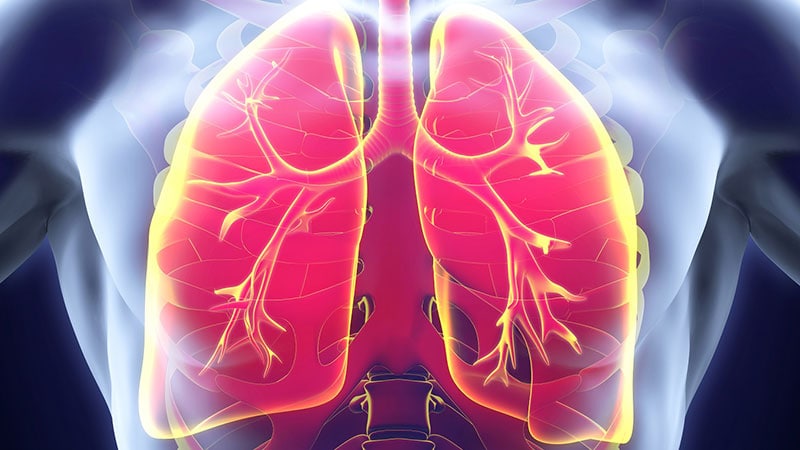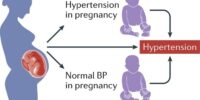Can Hypertension Cause Respiratory Problems?

Hypertension, also known as high blood pressure, is a common chronic medical condition affecting a significant proportion of the global population. It is characterized by persistently elevated blood pressure levels, which can lead to various cardiovascular complications.
While the association between hypertension and cardiovascular diseases is well-established, the relationship between hypertension and respiratory problems is a topic of increasing interest among researchers and healthcare professionals. This article aims to explore the potential link between hypertension and respiratory health, drawing on research studies and evidence-based literature.
Additionally, it will discuss the impact of hypertension on specific respiratory conditions and provide insights into managing and preventing hypertension-related respiratory problems. By understanding the potential connection between hypertension and respiratory health, individuals and healthcare providers can make informed decisions regarding prevention, early detection, and appropriate management strategies to promote overall health and well-being.
Key Takeaways
- Hypertension can lead to various respiratory problems.
- Inflammation, endothelial dysfunction, and oxidative stress contribute to the relationship between hypertension and respiratory conditions.
- Symptoms of respiratory distress include shortness of breath, wheezing, chest tightness, and difficulty breathing.
- Seeking prompt medical advice and comprehensive evaluation are important in addressing hypertension-related respiratory complications.
Understanding Hypertension and its Effects on the Body
Hypertension, a chronic medical condition characterized by high blood pressure, has been found to have detrimental effects on various bodily systems, including the respiratory system. Understanding hypertension and its impact on the cardiovascular system is crucial in comprehending its potential respiratory consequences.
Hypertension leads to increased stress on the heart, causing it to pump blood with greater force. This increased workload can result in the thickening of the heart muscle and reduced blood flow to the lungs, leading to respiratory problems.
Additionally, exploring the relationship between hypertension and kidney function is important as hypertension can lead to kidney damage. Impaired kidney function can disrupt the body’s fluid balance, leading to fluid accumulation in the lungs, a condition known as pulmonary edema.
Overall, hypertension can directly or indirectly contribute to respiratory problems by affecting cardiovascular and renal function.
The Link Between Hypertension and Respiratory Health
This discussion aims to explore the potential causes of respiratory problems in individuals with hypertension and the associated symptoms.
Hypertension, a condition characterized by high blood pressure, can lead to several complications that affect various organ systems, including the respiratory system.
Understanding the link between hypertension and respiratory health is crucial for effective management and treatment of these conditions.
Potential Causes of Respiratory Problems in Hypertensive Individuals
One possible factor contributing to respiratory problems in hypertensive individuals is the increased systemic inflammation often observed in this population. Hypertension is associated with chronic low-grade inflammation, characterized by elevated levels of pro-inflammatory cytokines and markers of systemic inflammation.
This persistent inflammatory state can lead to damage and dysfunction of the respiratory system. The underlying mechanisms linking hypertension and respiratory complications are multifactorial. Firstly, hypertension-induced inflammation can directly damage the airway epithelium, leading to airway remodeling and increased airway resistance.
Secondly, hypertension can impair vascular function and decrease oxygen supply, resulting in hypoxia and oxidative stress in the lungs. Additionally, hypertension can also promote the development of comorbidities such as obesity and diabetes, which further contribute to respiratory problems.
Understanding these mechanisms is crucial for developing effective strategies to prevent and manage respiratory complications in hypertensive individuals.
Symptoms of Respiratory Issues Related to Hypertension
Elevated systemic inflammation in hypertensive individuals can manifest as various symptoms related to respiratory complications, evoking concern and highlighting the need for effective management strategies.
Hypertension has been associated with an increased risk of respiratory problems such as chronic obstructive pulmonary disease (COPD), asthma, and sleep-disordered breathing. The underlying causes of these respiratory issues in hypertensive individuals are multifactorial and can include vascular dysfunction, oxidative stress, and impaired lung function.
Additionally, hypertension-induced inflammation can lead to airway remodeling, bronchoconstriction, and increased airway hyperresponsiveness. Effective management of respiratory problems in hypertensive individuals involves a comprehensive approach, including blood pressure control, lifestyle modifications, and pharmacological interventions.
It is crucial to address both hypertension and respiratory issues simultaneously to improve patient outcomes and reduce the burden of disease. Further research is needed to explore the mechanisms underlying the relationship between hypertension and respiratory complications and to develop targeted interventions for this population.
Exploring the Connection: Research and Studies
Research and studies have shown a potential link between hypertension and the development of respiratory problems. Various research findings and case studies have highlighted the association between these two conditions.
For instance, a study published in the Journal of Hypertension found that individuals with hypertension had a higher risk of developing respiratory symptoms such as shortness of breath and wheezing.
Another study conducted on a large cohort of patients with hypertension revealed an increased prevalence of chronic obstructive pulmonary disease (COPD) among this population.
Furthermore, research has shown that hypertension may contribute to the development and progression of respiratory conditions through various mechanisms, including endothelial dysfunction, oxidative stress, and inflammation.
Though more research is needed to fully understand the underlying mechanisms and establish causality, these findings suggest a potential relationship between hypertension and respiratory problems.
Managing Hypertension and Respiratory Health
This discussion focuses on managing hypertension and respiratory health. Specifically, it addresses two key points: lifestyle changes for blood pressure control and medications/treatment options for respiratory issues.
Lifestyle changes play a crucial role in managing hypertension. This includes adopting a healthy diet, regular exercise, and stress reduction techniques.
Additionally, medications and treatment options are available to address respiratory problems associated with hypertension. These options include bronchodilators and oxygen therapy.
Lifestyle Changes and Blood Pressure Control
Implementing lifestyle changes, such as adopting a healthy diet and increasing physical activity, can effectively control blood pressure levels and contribute to the prevention and management of hypertension.
These lifestyle modifications have been shown to have a significant impact on blood pressure control. A healthy diet, rich in fruits, vegetables, whole grains, and low-fat dairy products, can lower blood pressure due to its high content of potassium, magnesium, and fiber. Additionally, reducing sodium intake and avoiding excessive alcohol consumption are also important factors in blood pressure management.
Regular physical activity, including aerobic exercise and strength training, has been associated with lower blood pressure levels. Engaging in at least 150 minutes of moderate-intensity aerobic activity or 75 minutes of vigorous-intensity aerobic activity per week is recommended to maintain cardiovascular health and manage hypertension.
By incorporating these lifestyle changes, individuals can effectively control their blood pressure and reduce the risk of respiratory problems associated with hypertension.
Medications and Treatment Options for Respiratory Issues
To complement lifestyle changes, medications and treatment options are available for individuals with hypertension-related respiratory problems.
Medications are commonly prescribed to control blood pressure and alleviate symptoms. Antihypertensive drugs, such as angiotensin-converting enzyme inhibitors (ACE inhibitors) and calcium channel blockers (CCBs), are often utilized to lower blood pressure and reduce the strain on the respiratory system. These medications work by relaxing blood vessels, improving blood flow, and reducing the workload on the heart.
In addition to medication, treatment options such as pulmonary rehabilitation may be recommended. Pulmonary rehabilitation involves a combination of exercise, education, and support to improve respiratory function and overall quality of life.
Other treatment modalities, such as oxygen therapy, may also be employed to alleviate respiratory symptoms and enhance oxygenation.
The choice of medication and treatment options is tailored to the individual’s specific needs and can be determined by healthcare professionals specializing in respiratory and cardiovascular health.
Preventing Hypertension-Related Respiratory Problems
Preventing hypertension-related respiratory problems is crucial in order to maintain optimal respiratory health. Hypertension, or high blood pressure, can lead to various complications, including respiratory issues.
Lifestyle modifications play a significant role in preventing these complications. Regular physical activity, such as aerobic exercises, can improve lung function and strengthen respiratory muscles. Avoiding tobacco smoke, both active and passive, is essential as it can worsen respiratory symptoms and increase the risk of respiratory infections. Maintaining a healthy weight through a balanced diet can also contribute to respiratory health.
Additionally, managing stress levels through relaxation techniques, such as deep breathing exercises or meditation, can help prevent hypertension-related respiratory problems. By adopting these lifestyle modifications, individuals can potentially reduce their risk of developing respiratory issues associated with hypertension.
Impact of Hypertension on Specific Respiratory Conditions
The impact of high blood pressure on specific respiratory conditions can be significant and should not be overlooked.
Hypertension has been shown to negatively affect lung function, leading to the development or exacerbation of respiratory problems. One key factor in this relationship is the role of inflammation.
Hypertension is associated with chronic low-grade inflammation, which can contribute to the development of respiratory conditions such as asthma and chronic obstructive pulmonary disease (COPD). Inflammation in the airways can lead to airway narrowing, increased mucus production, and reduced lung function.
Additionally, hypertension-related endothelial dysfunction and oxidative stress can further contribute to respiratory problems. Therefore, it is crucial to recognize the impact of hypertension on lung function and consider the role of inflammation in hypertension-related respiratory problems for effective prevention and management strategies.
Seeking Medical Advice and Support
Consulting a healthcare professional is crucial when dealing with hypertension and its potential impact on respiratory conditions. Healthcare professionals can provide guidance on when to seek medical advice, especially if symptoms worsen or if there are concerns about the respiratory system.
Additionally, a comprehensive evaluation and management plan by a healthcare professional is important to ensure appropriate treatment and monitoring of both hypertension and any related respiratory problems.
When to Consult a Healthcare Professional
Seeking medical advice is crucial when experiencing respiratory difficulties associated with hypertension. It is important to seek help promptly as respiratory distress can be a sign of a serious underlying condition. Hypertension, or high blood pressure, can cause damage to the blood vessels in the lungs, leading to respiratory problems.
Symptoms of respiratory distress include:
- Shortness of breath
- Wheezing
- Chest tightness
- Difficulty breathing
If these symptoms occur, it is important to consult a healthcare professional. They can assess the severity of the symptoms and determine the appropriate course of action. Delaying or avoiding medical help can lead to further complications and potentially life-threatening situations. Therefore, it is essential to be proactive and seek medical advice when respiratory difficulties arise in individuals with hypertension.
Importance of Comprehensive Evaluation and Management
A thorough evaluation and comprehensive management plan are crucial in addressing the multifaceted nature of hypertension-related respiratory complications. By conducting a comprehensive evaluation, healthcare professionals can identify the underlying causes of respiratory problems in hypertensive patients, such as pulmonary edema or chronic obstructive pulmonary disease.
This evaluation may involve assessing the patient’s medical history, conducting physical examinations, and performing diagnostic tests, including lung function tests and imaging studies.
The benefits of comprehensive evaluation include early detection of respiratory complications and the ability to tailor treatment plans to individual patients. Effective management strategies may include lifestyle modifications, such as smoking cessation and weight management, as well as medication management to control blood pressure and alleviate respiratory symptoms. Additionally, healthcare professionals may recommend pulmonary rehabilitation programs to improve lung function and respiratory muscle strength.
By implementing a comprehensive evaluation and management plan, healthcare professionals can effectively address hypertension-related respiratory problems and improve patient outcomes.
Conclusion: Promoting Overall Health and Well-being
Promoting overall health and well-being is essential in managing hypertension and reducing the risk of respiratory problems. By adopting a comprehensive approach to evaluation and management, individuals can optimize their overall health and minimize the potential complications associated with hypertension.
This includes focusing on lifestyle modifications such as maintaining a healthy diet, engaging in regular physical activity, and managing stress levels. These interventions not only help in controlling blood pressure but also contribute to maintaining respiratory health.
A healthy diet, rich in fruits, vegetables, whole grains, and lean proteins, provides essential nutrients that support overall well-being and respiratory function. Regular physical activity promotes cardiovascular fitness, improves lung function, and enhances overall respiratory health. Additionally, managing stress through techniques like meditation or relaxation exercises can alleviate the physiological burden on the body, including the respiratory system.
In conclusion, prioritizing overall health and well-being through lifestyle modifications is crucial in managing hypertension and reducing the risk of respiratory problems. By promoting overall well-being and maintaining respiratory health, individuals can enhance their quality of life and mitigate the potential complications associated with hypertension.
Frequently Asked Questions
What are the symptoms of hypertension?
Symptoms of hypertension include headaches, dizziness, chest pain, and vision problems. High blood pressure can cause damage to blood vessels and organs, leading to complications such as heart attack, stroke, kidney disease, and eye problems.
How can hypertension be diagnosed?
The diagnosis of hypertension is typically made through blood pressure measurements. Treatment options for hypertension include lifestyle modifications and medication. However, the relationship between hypertension and respiratory problems is not directly addressed in this response.
Can respiratory problems be the only symptom of hypertension?
Respiratory complications in hypertension patients can occur due to the impact of hypertension on lung function. Although hypertension is primarily a cardiovascular condition, it can affect the respiratory system and manifest as respiratory problems.
Natural remedies and alternative treatments for hypertension-induced respiratory problems can include lifestyle modifications such as regular exercise, maintaining a healthy weight, reducing salt intake, and managing stress. Additionally, certain herbal supplements like garlic, hawthorn, and fish oil may also have potential benefits.
How long does it take for hypertension to cause respiratory problems?
The long-term effects of hypertension may lead to respiratory problems. Treatment options for hypertension-related respiratory issues vary and may include medication, lifestyle changes, and management of underlying conditions to alleviate symptoms and prevent further complications.









